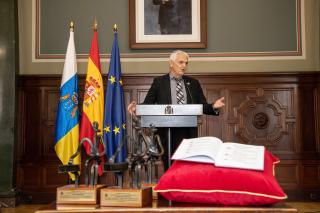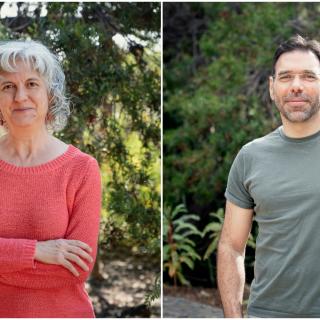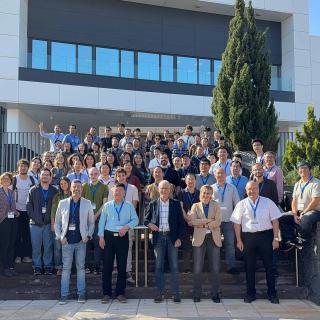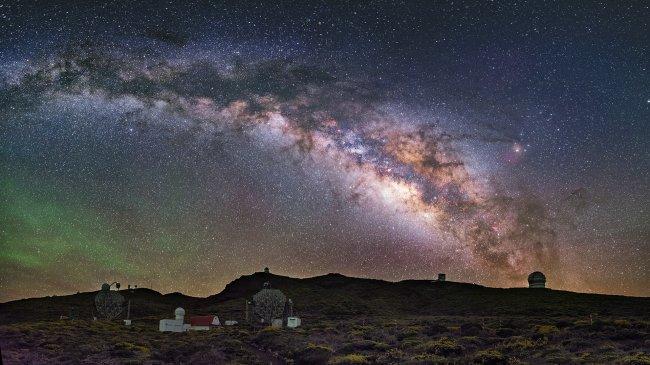It may interest you
-
 El Instituto de Astrofísica de Canarias (IAC) ha sido distinguido por la Delegación del Gobierno en Canarias con uno de los reconocimientos entregados durante el acto de conmemoración del 47 aniversario de la Constitución española de 1978, celebrado este 6 de diciembre y presidido por el delegado del Gobierno en Canarias, Anselmo Pestana. La Delegación del Gobierno ha reconocido la labor del IAC, que celebra su 40 aniversario, en virtud del artículo 44.2 de la Constitución Española, por su fundamental contribución a la promoción de la ciencia y la investigación científica y técnica enAdvertised on
El Instituto de Astrofísica de Canarias (IAC) ha sido distinguido por la Delegación del Gobierno en Canarias con uno de los reconocimientos entregados durante el acto de conmemoración del 47 aniversario de la Constitución española de 1978, celebrado este 6 de diciembre y presidido por el delegado del Gobierno en Canarias, Anselmo Pestana. La Delegación del Gobierno ha reconocido la labor del IAC, que celebra su 40 aniversario, en virtud del artículo 44.2 de la Constitución Española, por su fundamental contribución a la promoción de la ciencia y la investigación científica y técnica enAdvertised on -
 The Instituto de Astrofísica de Canarias (IAC) has again shown its high quality in the field of international research. Two of its Research Professors, Carme Gallart and Enric Pallé, have been selected by the European Research Council (ERC) to receive ERC Advanced Grant s , the most prestigious and competitive grants of the Horizon Europe programme. This call for proposals is aimed at researchers who are leaders in their fields, with consolidated records and highly innovative proposals. Each grant can reach up to 2.5 million euros over five years, with additional funding for specific needsAdvertised on
The Instituto de Astrofísica de Canarias (IAC) has again shown its high quality in the field of international research. Two of its Research Professors, Carme Gallart and Enric Pallé, have been selected by the European Research Council (ERC) to receive ERC Advanced Grant s , the most prestigious and competitive grants of the Horizon Europe programme. This call for proposals is aimed at researchers who are leaders in their fields, with consolidated records and highly innovative proposals. Each grant can reach up to 2.5 million euros over five years, with additional funding for specific needsAdvertised on -
 Researchers from around the world are taking part in the China–Spain Astronomical Collaboration on High-Resolution Spectroscopy 2025, an event organised by the Instituto de Astrofísica de Canarias (IAC) in collaboration with the National Astronomical Observatories of China (NAOC), the Nanjing Institute of Astronomical Optics & Technology (NIAOT), and the Gran Telescopio Canarias (GTC) team. The aim of the conference is to strengthen and consolidate scientific cooperation between China and Spain in the field of high-resolution spectroscopy, one of the key areas for studying stars, galaxiesAdvertised on
Researchers from around the world are taking part in the China–Spain Astronomical Collaboration on High-Resolution Spectroscopy 2025, an event organised by the Instituto de Astrofísica de Canarias (IAC) in collaboration with the National Astronomical Observatories of China (NAOC), the Nanjing Institute of Astronomical Optics & Technology (NIAOT), and the Gran Telescopio Canarias (GTC) team. The aim of the conference is to strengthen and consolidate scientific cooperation between China and Spain in the field of high-resolution spectroscopy, one of the key areas for studying stars, galaxiesAdvertised on
